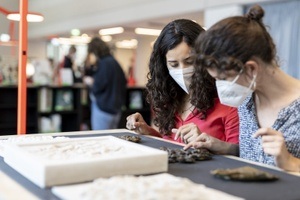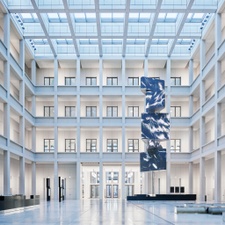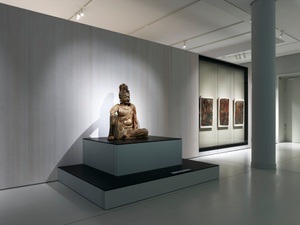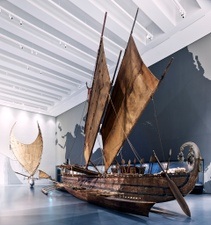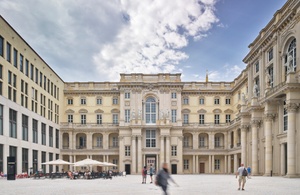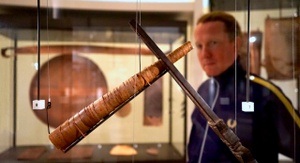Reihe Gästezimmer: Nshinga mula kawutu utapuluka – Fäden spannen, Wissen verknüpfen
In the organizer's words:
As part of the Guest Room series, the multidisciplinary visual artist and researcher Nada Tshibwabwa presents the first insights and developments of his project Nshinga mula kawutu utapuluka - Spinning Threads, Linking Knowledge.Nada Tshibwabwa, born in Lubumbashi in the Republic of Congo and currently living and working in Kinshasa, is intensively engaged with his Congolese heritage in his artistic practice.
The focus is on objects and myths of the Luba community, their historical contexts, colonial legacies and their significance for the present day.the project Nshinga mula kawutu utapuluka aims to connect stories and people. Tshibwabwa draws attention to the fact that ethnological collections are often only accessible to a limited extent to the communities that created the objects and that these often remain silent for many visitors. The project opens up new perspectives for the decolonized exchange of knowledge and creates space for the fantastic and imaginary.Nada Tshibwabwa is a CoMuse Fellow at the Ethnologisches Museum and the Museum für Asiatische Kunst.
Participants
Nada Tshibwabwa is a multidisciplinary visual artist and researcher from the Democratic Republic of Congo, currently living and working in Kinshasa. In his work, he engages with his Congolese heritage, particularly with objects and myths of the Luba community, by exploring the historical context, colonial legacies and their contemporary relevance.With the project Nshinga mula kawutu wu utapuluka - Stretching Threads, Connecting Knowledges, Tshibwabwa will develop new, transportable sculptures and interactive installations that promote healing, resilience and two-way communication through dialog with museum objects and community narratives. Exhibitions are planned in Berlin, Kinshasa and Kananga. The focus will be on community participation and addressing colonial inequalities.
Partners
CoMuse - The Collaborative Museum is an initiative of the Ethnologisches Museum and the Museum für Asiatische Kunst, which aims to jointly develop multi-perspective approaches to collection-based research and to test new formats for collaborative processes in order to sustainably intensify the decolonization and diversification of museum practice.the CoMuse Fellowship Programme is supported by Künstlerhaus Bethanien, which provides a studio for artistic and scientific research.
- free of charge, no ticket required
- Language: English
- Location: Mechanical arena in the foyer
- Part of: Guest room
This content has been machine translated.




